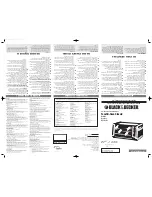
6
4 219 316 / 00
IMPORTanT nOTES
1.7
Regulations, standards, ordinances to be
complied with for proper use
The locally applicable heating system regulations must
be followed when planning, installing and operating the
gas heat generator:
• The regulations of the local building authorities, insur-
ance companies, chimney sweeps and the state/can-
ton. etc. must also be taken into account.
• The regulations of the responsible gas supply company
are to be complied with if using gas.
• Regulations governing the discharge and treatment of
condensate are subject to the specifications of the local
water authorities.
• Approval by the authorities may be required for instal-
lation.
The standards, guidelines and ordinances listed for the
specific countries are relevant for the installation and op
-
eration of the gas heat generator. The list is intended as
an aid. It is not complete. The currently applicable regula-
tions must be observed.
Germany §
• DIN EN 12828 Heating systems in buildings - Design
of hot water heating systems
•
DIN EN 12831 Energy efficiency of buildings - Method
for calculation of the design heat load
• DIN EN 13384 Flue gas systems – Calculation meth-
ods in heat and flow engineering
• DIN EN 14868: Protection of metallic materials against
corrosion - Guidance on the assessment of corrosion
likelihood in closed water circulation systems
• DIN EN 50156; VDE 0116: Electrical equipment of
combustion plants and associated facilities
• DIN VDE 0100 Erection of low-voltage installations
(for electrical installation and the TAB (technical con-
nection requirements of the relevant energy supply
company))
• VDI 2035 Prevention of damage in hot water / heating
systems by corrosion and the formation of scale in
closed hot water heating systems.
• Rules for gas established by DVGW (in particular
DVGW-TRGI Technical rules for gas installations)
• Firing ordinance of the federal states
•
Technical specifications of the gas supply companies
• Worksheet DWA-A 251 Condensate from condensing
boilers
The regulations of the local water authorities could
deviate from the rules in this worksheet.
• Accident prevention regulations
- DGUV Regulation 1 Accident prevention regulations
- Guidelines for prevention
- DGUV Regulation 4 Accident prevention regulations
- Electrical installations and equipment
Austria §
•
ÖNORM EN 12828 Heating systems in buildings - De
-
sign of hot water heating systems
•
ÖNORM EN 12831 Energy efficiency of buildings -
Method for calculation of the design heat load
•
ÖNORM EN 13384 Flue gas systems - Heat and flow
calculation methods
•
ÖNORM EN 14868: Protection of metallic materials
against corrosion - Guidance on the assessment of
corrosion likelihood in closed water circulation systems
• OVE 50156: Electrical equipment of combustion plants
and associated facilities
•
ÖNORM H 5152 Calorific plants - Planning guidelines
•
ÖNORM H 5170 Heating systems - Requirements
with respect to building and safety technology, fire and
environmental protection
•
ÖNORM H 5195-1 Heat transfer fluid for building tech
-
nology - Prevention of damage by corrosion and the
formation of scale in closed hot water heating systems
• ÖVGW rules for gas
•
Technical specifications of the gas supply companies
• SNT regulations
Switzerland §
• SN EN 12828+A1;SIA 384.101+A1 Heating systems in
buildings - Design of hot water heating systems
•
SN DIN EN 12831 Energy efficiency of buildings -
Method for calculation of the design heat load
• SN EN 13384;SIA 384.42x Flue gas systems - Heat
and flow calculation methods
• SN EN 14868: Protection of metallic materials against
corrosion - Guidance on the assessment of corrosion
likelihood in closed water circulation systems
• SN EN 50156: Electrical equipment of combustion
plants and associated facilities
•
SWKI 91-1 Aeration and ventilation of the boiler room
•
SWKI 93-1 Safety engineering installations for heating
systems
• SWKI BT102-01 Water quality for building services
systems
• SVGW rules for gas
•
Swiss fire protection regulations (BSV) of the VKF
(Association of Cantonal Fire Insurers)
•
Regulations of the cantonal and local fire authorities
• Water Protection Regulation (GSchV)
•
EKAS - Guidelines for liquefied gas
Other countries §
For all other countries of destination, the locally applicable
country-specific regulations must be observed.
Summary of Contents for TopGas classic 100
Page 46: ...46 4 219 316 00...
Page 47: ...47 4 219 316 00...







































